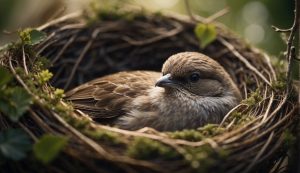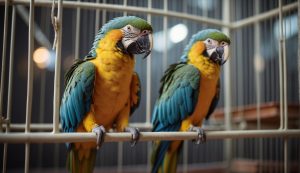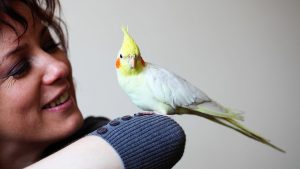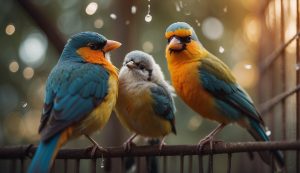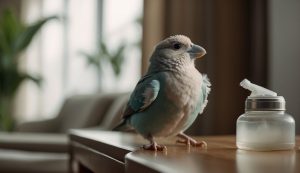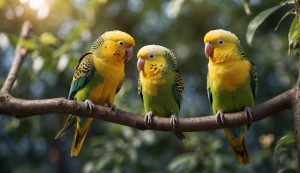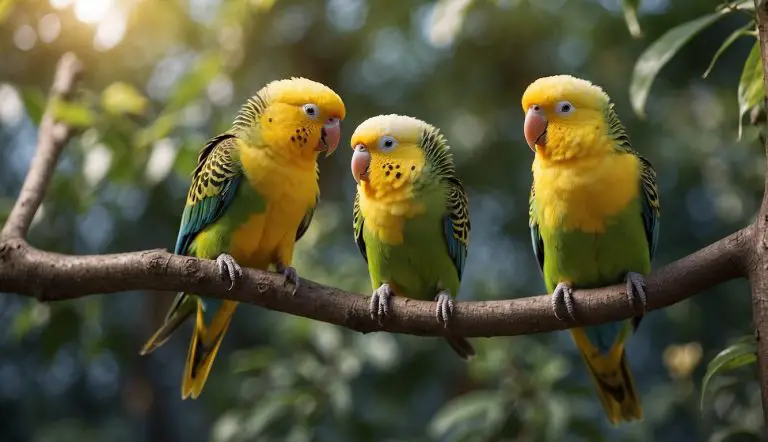Which Parrots Talk the Best? – A Comprehensive Guide
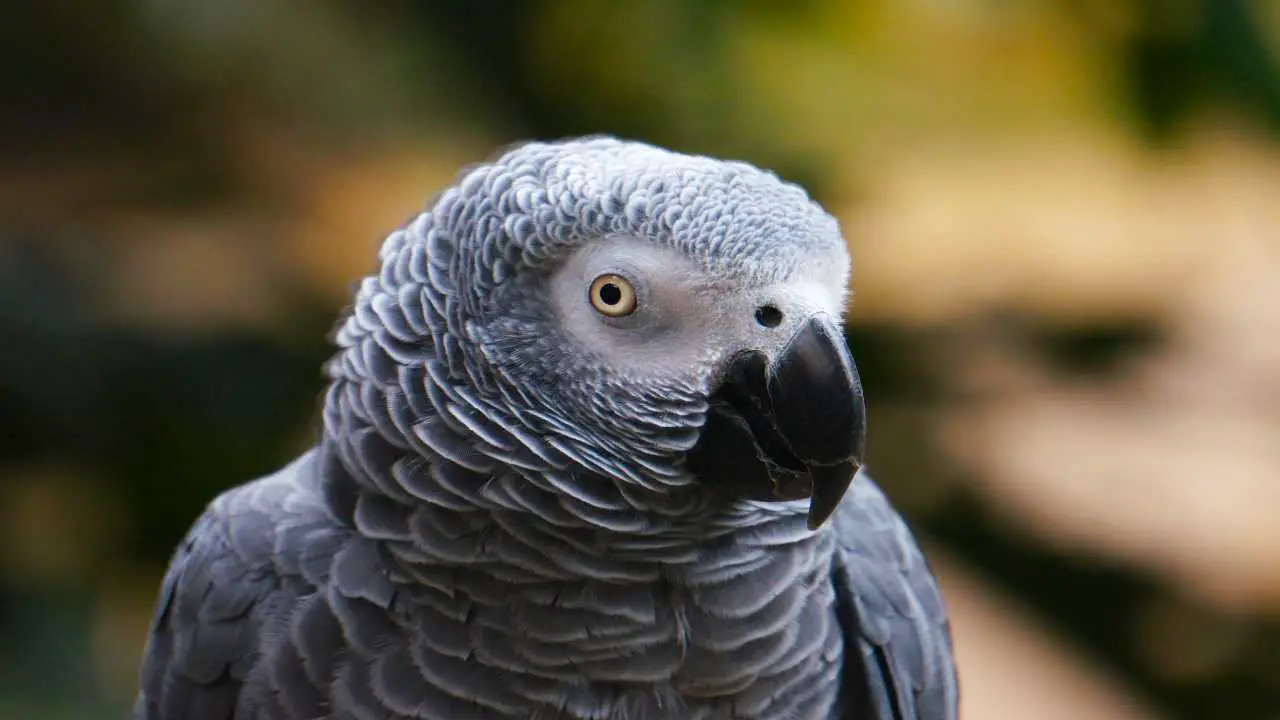
Are you thinking of getting a parrot as a pet? One of the most fascinating things about parrots is their ability to talk. But which parrots talk the best? With so many species of parrots out there, it can be overwhelming to know where to start.
In this article, I’ll explore some of the best talking parrots and what makes them stand out.
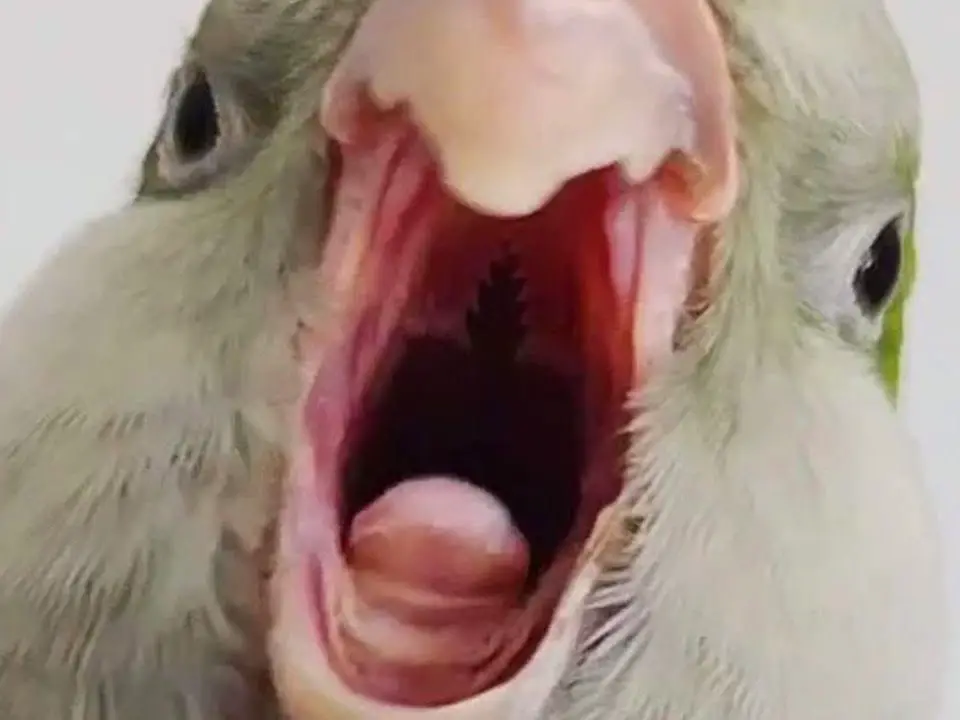
Quick Summary
When it comes to talking birds, parrots are the most famous and popular species. They are known for their ability to mimic human speech and sounds, which makes them great companions for those who enjoy interacting with their pets.
However, not all parrots are created equal when it comes to talking. Some species are better at it than others, and even within a species, individual birds can vary in their speech abilities. So, which types of parrots are the best talking birds? Let’s find out.
If you’re looking for a pet that can hold a conversation with you, it’s important to choose the right species.
In this article, we’ll introduce you to some of the best talking parrots, including African grey parrots, Amazon parrots, and budgies. We’ll also discuss what makes these birds stand out when it comes to speech and what you can do to encourage your parrot to talk. Whether you’re a first-time parrot owner or a seasoned bird enthusiast, this guide will help you find the perfect talking bird for your home.
Table of Contents
The Top Talking Parrots
When it comes to talking parrots, there are a few species that stand out for their impressive speaking ability. In this section, we’ll take a look at some of the top talking parrots, including African Grey Parrots, Amazon Parrots, Eclectus Parrots, and Yellow-Naped Amazon Parrots.
African Grey Parrots
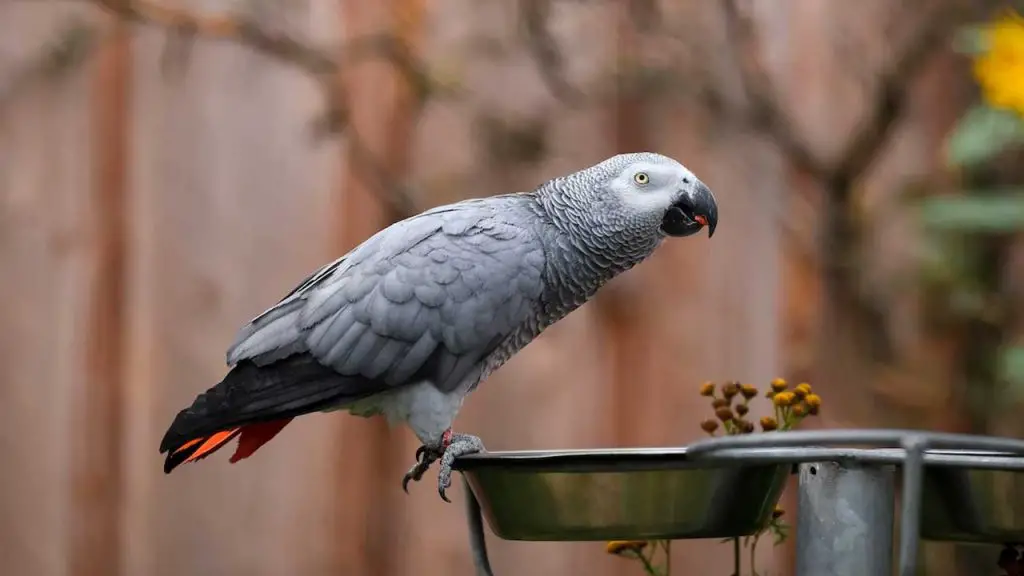
African Grey Parrots are widely considered to be the best talking parrots.
These intelligent birds have a remarkable ability to mimic human speech and sounds, and can even learn to use words in context. In fact, some African Grey Parrots have been known to develop vocabularies of up to 1,000 words or more.
Amazon Parrots
Amazon Parrots are another species known for their talking ability.
These birds have a loud, clear voice and are capable of learning a wide variety of words and phrases.
Some Amazon Parrots have even been known to sing entire songs!
While they may not have quite the same level of speaking ability as African Grey Parrots, Amazon Parrots are still highly intelligent and entertaining birds.
Eclectus Parrots
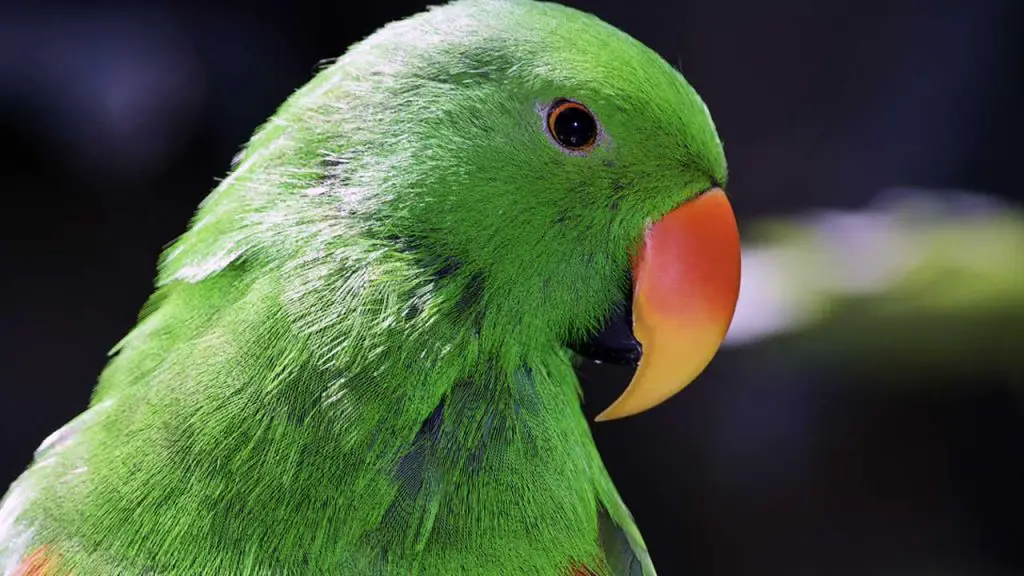
Eclectus Parrots are known for their striking appearance, with the males and females exhibiting different coloration. But these birds are also great talkers, with a clear, articulate voice and a wide vocabulary. Eclectus Parrots are also highly intelligent and can learn to perform a variety of tricks and behaviors.
Yellow-Naped Amazon Parrots
Yellow-Naped Amazon Parrots are a subspecies of Amazon Parrot, but they deserve their own mention for their exceptional speaking ability. These birds have a clear, melodic voice and can learn to speak a wide variety of words and phrases. In fact, some Yellow-Naped Amazon Parrots have been known to develop vocabularies of up to 500 words or more.
Overall, if you’re looking for a parrot that can talk, any of these four species would be a great choice. Just remember that each bird is an individual and may have different levels of speaking ability, so it’s important to spend time with a potential pet and get to know their personality before making a decision.
Other Talkative Parrot Species
If you’re looking for a talkative parrot, there are several other species that you might want to consider. Here are some of the most talkative parrot species other than African Grey Parrots and Amazons:
Budgerigars

Budgerigars, also known as parakeets and budgies, are small and colorful birds that are native to Australia. They are famous for their ability to mimic human speech and sounds. In fact, budgerigars have broken world records for the largest bird vocabulary.
While their voices tend to be a bit gravelly, budgerigars are capable of learning many words and phrases. They are also very social and can bond strongly with their owners.
Cockatoos
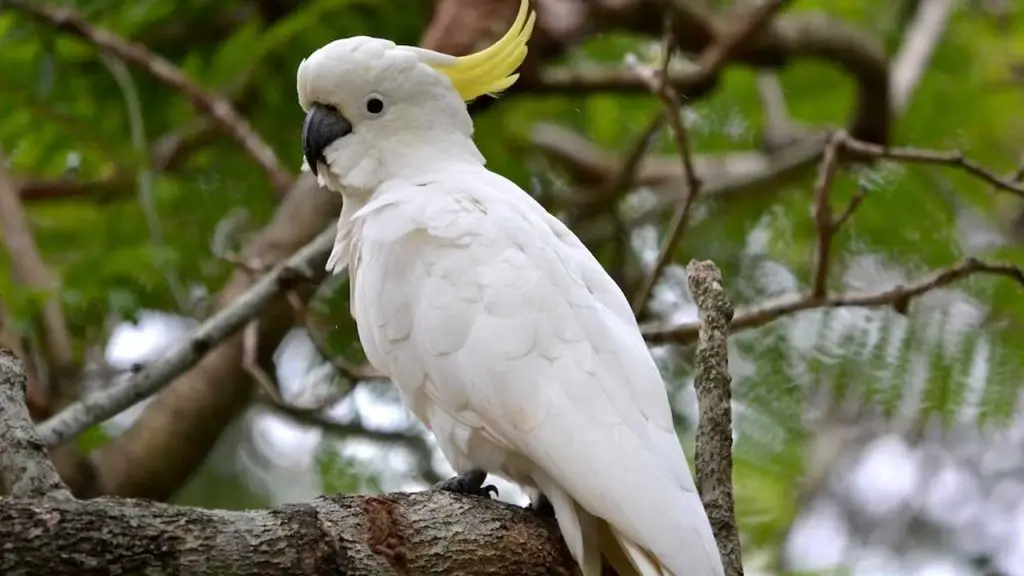
Cockatoos are large and beautiful birds that are native to Australia, Indonesia, and the Philippines. They are known for their loud and raucous calls, but they can also be excellent talkers. Some species of cockatoos, such as the Moluccan Cockatoo, are particularly good at mimicking human speech. Cockatoos are very social birds and require a lot of attention and interaction from their owners.
Quaker Parrots
Quaker Parrots, also known as Monk Parakeets, are small and energetic birds that are native to South America. They are very social and can bond strongly with their owners. Quaker Parrots are also excellent talkers and can learn many words and phrases. They have a clear and distinct voice that is easy to understand.
Indian Ringneck Parakeets
Indian Ringneck Parakeets are medium-sized birds that are native to India and Sri Lanka. They are known for their beautiful plumage and their ability to mimic human speech. Indian Ringneck Parakeets are very social and can bond strongly with their owners. They require a lot of attention and interaction to stay happy and healthy.
Rose Ringed Parakeets
Rose Ringed Parakeets, also known as Ring-Necked Parakeets, are medium-sized birds that are native to Africa and Asia. They are famous for their bright and colorful plumage and their ability to mimic human speech. Rose Ringed Parakeets are very social and can bond strongly with their owners. They require a lot of attention and interaction to stay happy and healthy.
Lifestyle and Vocalization
It’s important to remember that owning a talkative parrot requires a significant time commitment. These birds are very social and require a lot of attention and interaction to stay happy and healthy. They also require a lot of mental stimulation, so it’s important to provide them with plenty of toys and activities to keep them entertained.
In terms of vocalization, it’s important to remember that not all parrots will talk. Even within a species, some birds may be more talkative than others. It’s also important to remember that not all birds will mimic human speech. Some birds may whistle or make other sounds instead.
Conclusion
In conclusion, there are several other parrot species that are known for their ability to talk. Budgerigars, Cockatoos, Quaker Parrots, Indian Ringneck Parakeets, and Rose Ringed Parakeets are all excellent talkers that can bond strongly with their owners. However, owning a talkative parrot requires a significant time commitment and a lot of patience.
Training Your Parrot to Talk
Teaching your parrot to talk can be a fun and rewarding experience for both you and your feathered friend. With patience, consistency, and positive reinforcement, you can train your parrot to mimic words and phrases just like a pro. Here are some tips to get you started:
Positive Reinforcement
Positive reinforcement is the key to training your parrot to talk. Reward your bird with treats, praise, or attention every time it makes an effort to mimic a word or phrase. Consistency is important, so make sure to reward your parrot every time it tries, even if it’s not quite perfect yet. This will encourage your bird to keep trying and improve its vocal skills over time.
Teaching Words and Phrases
Start with simple, one-syllable words like “hello” or “hi.” Repeat the word clearly and slowly, and encourage your parrot to mimic you by rewarding it when it tries. Once your bird has mastered a few simple words, you can move on to longer phrases or sentences. Remember, repetition is key, so be patient and keep practicing with your parrot.
Tricks and Attention
Training your parrot to do tricks can also help improve its vocal skills. For example, you can teach your bird to wave, turn around, or even play dead. These tricks will not only impress your friends and family, but they will also help your parrot learn new words and phrases. Additionally, giving your parrot plenty of attention and interaction can also encourage it to talk more.
Health
It’s important to keep your parrot healthy and happy in order for it to learn and develop its vocal skills. Make sure your bird has a balanced diet, plenty of exercise, and a clean living environment. If you notice any changes in your parrot’s behavior or vocalization, it’s important to consult with a veterinarian to rule out any health issues.
In conclusion, training your parrot to talk can be a fun and rewarding experience. With patience, consistency, and positive reinforcement, you can help your feathered friend become a talented talker. Remember to keep your parrot healthy and happy, and enjoy the journey of teaching your bird new words and phrases.
Personality and Relationships with Humans
When it comes to choosing a talking parrot, it’s important to consider their personality and how they interact with humans. Here are some factors to keep in mind:
Pet Parrots
Pet parrots are social creatures and thrive on human interaction. They are often affectionate and enjoy spending time with their owners. Parrots that are kept as pets are more likely to develop a large vocabulary and be comfortable speaking in front of people.
Shy Birds
Some parrots are naturally shy and may take longer to warm up to their owners. If you’re looking for a parrot that will be comfortable speaking in front of people, it’s best to choose a bird that is outgoing and sociable.
Laughing Parrots
If you’re looking for a parrot that will bring a smile to your face, consider a laughing parrot. These birds have a unique ability to mimic human laughter and can be quite entertaining.
Mimicking Tones
Parrots are excellent at mimicking human speech, but they can also mimic other sounds, such as whistles and tones. If you’re looking for a parrot that will be able to mimic a specific sound, choose a bird that has a good ear for picking up new sounds.
Vocalizing
Parrots are vocal creatures and enjoy making noise. If you’re looking for a parrot that will be comfortable speaking in front of people, choose a bird that is vocal and enjoys making noise.
When choosing a talking parrot, it’s important to consider their personality and how they interact with humans. Pet parrots are often the best choice, as they are social and enjoy spending time with their owners. Shy birds may take longer to warm up to people, while laughing parrots can be quite entertaining. Parrots that are good at mimicking tones and are vocal are more likely to develop a large vocabulary and be comfortable speaking in front of people.
Parrot Care and Health
Taking care of a talking parrot is a big responsibility. These birds require a lot of attention, love, and care. Here are some important things to keep in mind when it comes to caring for your parrot’s health and well-being.
Lifespan
Parrots are known for their long lifespans. Depending on the species and subspecies, a parrot can live anywhere from 15 to 80 years or more. This means that owning a parrot is a long-term commitment, and you should be prepared to care for your bird for many years to come.
Bonding with Your Parrot
Bonding with your parrot is an important part of caring for them. Parrots are social creatures and thrive on human interaction. Spend time with your bird every day, talking to them, playing with them, and training them. This will help your parrot feel loved and secure in their environment.
Common Health Issues
Parrots can be prone to certain health issues, so it’s important to keep an eye out for any signs of illness. Some common health issues in pet birds include:
- Respiratory infections
- Feather plucking
- Psittacosis (a bacterial infection)
- Beak and feather disease
To keep your parrot healthy, make sure they have a clean and spacious cage, a healthy diet, and plenty of exercise. It’s also important to take your bird to the vet regularly for check-ups and vaccinations.
In conclusion, caring for a talking parrot is a big responsibility, but it can also be a rewarding experience. By providing your bird with the love, attention, and care they need, you can help ensure that they live a long and healthy life.

